(Editor’s Note: The article is adapted from the upcoming book Cornfields to Gold Medals: The Story of Coach Don Showalter and 15 GOLD Lessons from a Life of Leadership)
(3 Minute Read)
Coach Showalter glances at his phone as he and his coaching staff circulate across the dormitory. The digital display read 2:55 AM. At 3:00 AM, in unison, each coach knocks on a door and in their coaching voice shouts, “Get-up! Get-up! Time to rise!” Within a few seconds, teenagers appear; eyes squinted as they adjust to the light; brows furrowed, perhaps an annoyed expression but likely more in an inquisitive nature, curious about the early wake-up call. The coaches hand them a piece of paper with directions to follow, but no explanation. The youth retreat to get dressed as the coaches made their way to the commons area, a large open space outside the dormitory.
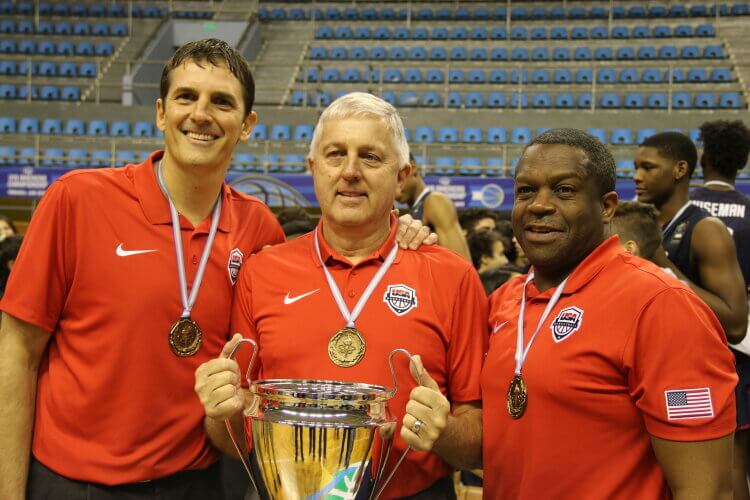
It was 2018 and the USA Basketball Junior National Team was in the middle of an eight-day training camp at the United States Olympic and Paralympic Training Center in Colorado Springs, CO in preparation for the U17 World Championships in Argentina. The teenagers are 16-17-year-old elite-level athletes, the best in the United States. The directions on the piece of paper state to be outside in the commons area by 3:10 AM in full workout gear. As the athletes converge on the commons area they are met by the coaches and another gentleman, unfamiliar to them. At 3:10, Coach Showalter orders all athletes present into a plank position, a core strength exercise. The athletes stay in the plank position until all their teammates are present, as a few stumble in late.
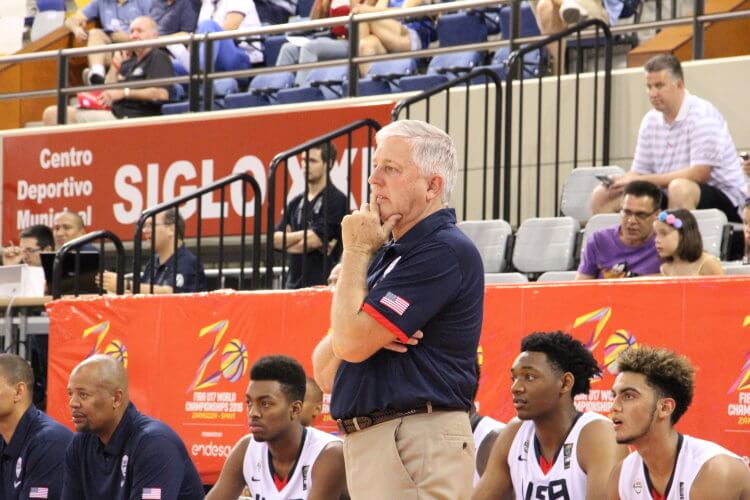
The person unaccustomed to the group was a Navy SEAL.[1] Both Coach Showalter and Junior National Team Director, Samson Kayode arranged his visit to encourage team bonding and teamwork. Over the next four hours, the Navy SEAL took the U16-U17 team through a series of activities to challenge their physical stamina and mental fortitude, while at the same time instill lessons about the importance of communication, teamwork and caring for your teammates. For example, the plank exercise demonstrated to the athletes how the selfish act of being late made their teammates suffer. After the early morning session, the group broke for breakfast and reconvened for an hour debrief. In this final session, the Navy SEAL reiterated the key take-aways from the morning activities with personal stories that focused on hard work, staying humble, and surrounding yourself with good people.
Hard Work
As a coach, Showalter deliberately promotes and teaches the importance of hard work. On the basketball court, that means celebrating moments where an athlete demonstrates extra effort. For example, during a routine defensive drill, if an athlete displays increased intensity in rotating positions, taking a charge, or diving on the floor, Showalter will acknowledge the effort immediately with verbal praise. He may even stop play to capture the attention of the team and reinforce how hard work will make your teammates better. In addition, Showalter teaches each member of the team to acknowledge when a teammate displays extra effort. Thus, in the same defensive drill, athletes would recognize the hard work of their teammate and respond by clapping and cheering, as well as giving high fives and fist pounds. This purposeful approach instills a team atmosphere that hard work matters and you will be rewarded for your effort.
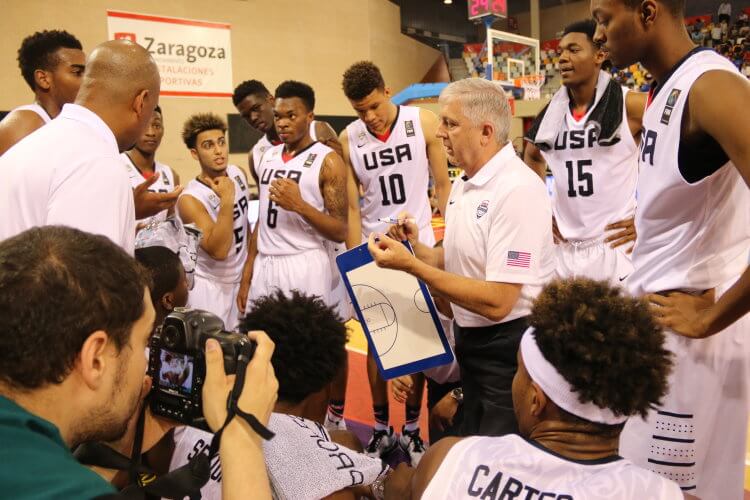
In another example, the game of basketball only allows five athletes on the team to be on the court at one time. Thus, playing time is coveted and serves as validation of one’s athletic competence. It can also be an indicator of one’s work ethic. With a keen sense of the value athletes place on playing time, Showalter may reward lesser skilled athletes for their work ethic with increased court time in an upcoming game, but not at the expense of what is best for the team to achieve competitive success. In doing this, Showalter acknowledges the athlete’s works ethic and demonstrates to all team members the value of hard work, while at the same time teaching another important lesson; although hard work is needed to achieve success it may not always lead to the outcome you are seeking. In other words, you need to put in the work, but there is a chance you will not succeed. In this example, a lesser skilled athlete may have a goal of becoming a starter, one of the five main players, but even though they work hard and make gains towards this goal, they may not achieve their desired outcome.
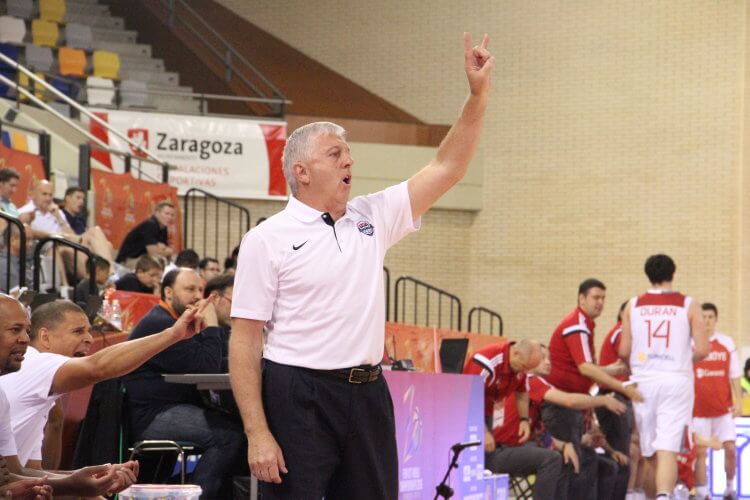
Be Humble and Surround Yourself with Good People
For Coach Showalter, hard work is only one part of the equation to achieve success and come together as a team. The other two components are to stay humble and surround yourself with good people. When an individual team member has success, such as a career high scoring night in a recent basketball game, it is important for the athlete to stay humble and appreciate their teammate’s role in their recent achievement. An individual work ethic can only take an athlete so far, they will need their teammates and coaches to achieve successful outcomes long-term. Thus, it is important to surround yourself with good people. While athletes do not always get to select their teammates or coaches, they can select the people they associated with away from the court. For the USA Basketball Junior National Team, the coaches and the National Team Director consider the athlete’s personal attributes as much as their skill level when selecting the final squad to represent the USA in competition; an approach that means the team is not always composed of the most talented 16 or 17-year-olds in the United States, as a few may not make the team.
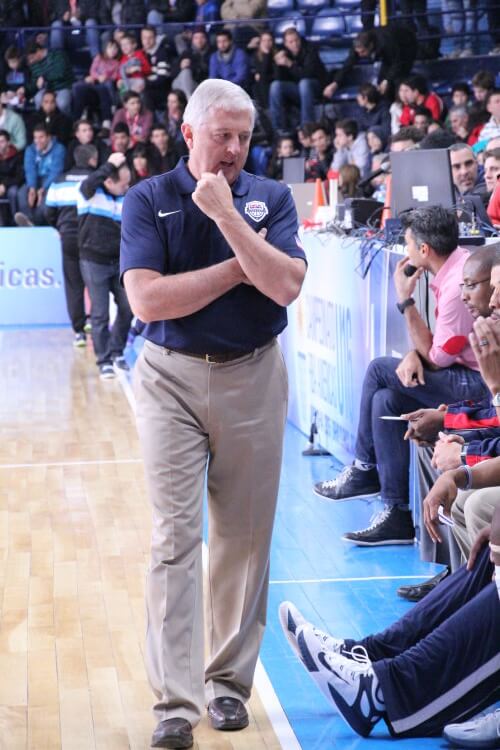
As a coach, Showalter deliberately teaches and instills the importance of hard work. As a leader, he exerts a humbleness in regard to his own success, an approach that draws others towards him and creates opportunities to surround himself with good people for continued success. To implement these concepts as a leader consider the following:
- Teach the importance of hard work. Do not assume that everyone knows how to work hard, you will need to demonstrate and teach what hard work looks like in what you do. Hard work can be uncomfortable, challenging, mundane, and time-consuming. But through hard work, you become resilient, adaptable, and learn to persevere. Learning and working hard together can become a shared experience among those in your organization.
- Acknowledge and reward the work ethic of those you lead. Develop strategies to help others recognize and celebrate the work ethic of their peers.
- Strive to place good people around you by recognizing how others influence your thoughts and actions. It can be difficult as a leader to be the person you want to be when you are surrounded by people that are either selfish or have goals that stray too far from the organization’s goals. Thus, use caution when hiring staff and consider what personal attributes they offer beyond their skill set.
- Remember to be humble and appreciate how others have helped you in moments where you have achieved success. This action will gravitate others towards you for future opportunities and success.
[1] Hiring Navy SEALs to conduct team building activities for employees is common in corporations.
